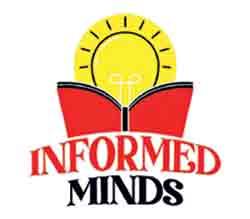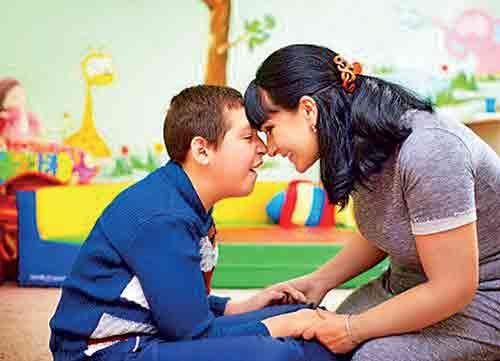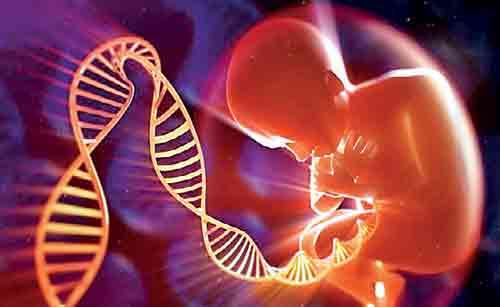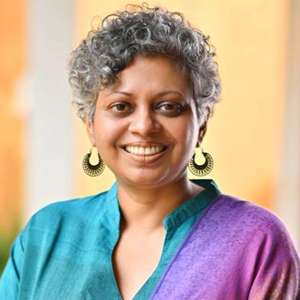“To be in your children’s memories tomorrow, you have to be in their lives today.”
Barbara Johnson
 There is a popular belief that adopted children are “the lucky ones” to be given the opportunity of being placed in a loving home. But in truth, parenting, be it for biological or adoptive children, has very little to do with luck. Rather, it is about readiness, responsibility, and resilience. And far too often, adoptive parents confuse love with leniency, smothering their children with indulgence instead of guiding them with strength.
There is a popular belief that adopted children are “the lucky ones” to be given the opportunity of being placed in a loving home. But in truth, parenting, be it for biological or adoptive children, has very little to do with luck. Rather, it is about readiness, responsibility, and resilience. And far too often, adoptive parents confuse love with leniency, smothering their children with indulgence instead of guiding them with strength.
Love is Not Enough
Adopted children, especially when they are made aware early on in childhood that they have been adopted, are incredibly perceptive. Some, particularly in their adolescent years, start testing boundaries more than most. And many parents, caught in the emotional trap of guilt or fear, fail to hold the line. They worry: What if I say no and they leave me? What if I’m too tough and they reject me? And, before long, this fear-based parenting becomes the foundation for a dynamic between parent and child where the adopted child calls the shots, and the parent plays catch-up. Love becomes appeasement. Discipline becomes avoidance. And values get lost somewhere in the middle.

The Dangerous Double Standard
In families where there are both adopted and biological children, the contrast can be glaring. The advantage of being a school principal is that one has the opportunity to observe children and parents first hand. And while one cannot stereotype, in general it is the biological siblings who are expected by their parents to be more resilient, more mature, more understanding, whilst constantly making allowances for their adopted child’s moods, demands, or rebellion. Parents do not hesitate to tell off their biological children but hesitate when it comes to the adopted one. Why? Because deep down, they fear being seen as ungrateful, unkind, or even unworthy of the child they “chose.” But this emotional disparity does more harm than good. It creates confusion, resentment, and, eventually, distance between siblings. Children are quick to pick up on injustice. And biological children are unable to comprehend why they are expected to be the ‘bigger person’ in a house that is supposed to be built on equality.

Do You Have to Adopt?
Adoption is often painted as a noble act. And indeed, it can be. In a world with so many children in need of love, why bring more children into it, especially when fertility options today are both costly and invasive? There is a compelling community-based logic to adoption. But nobility is not enough. Parenting is neither a photo opportunity nor a one-time decision. Rather, it is a lifetime commitment. The question is not should one adopt, but rather, am I ready to adopt? Pregnancy, in a way, forces readiness. It gives you nine months to prepare emotionally, physically, and even socially.
Adoption, however, is often swift. A decision, some paperwork, and a child is in your arms. But what of the preparation? The emotional readiness to parent a child who may not look like you, think like you, or carry your blood? The inherent issue has nothing to do with biology. Some of the worst parents I have seen are biological ones who never should have had children in the first place. And some of the most brilliant, nurturing mothers I know have never been pregnant. So, no, parenting is not about DNA. Rather, it is about the intention, the awareness, and the ability to raise a human being into someone who can contribute to society with dignity and empathy.

Nature vs Nurture: The Truth is in the Mix
The age-old debate of nature versus nurture still looms large when it comes to adoption. What if the child turns out to be difficult? What if they inherit traits from their birth parents that I cannot undo? But truthfully, the same can be said about biological children. Genetics are unpredictable. No parent can control temperament, only how it is guided. The fear that an adopted child may exhibit ‘unknown’ behaviours is rooted more in prejudice than science. I have known adopted children who were difficult, entitled, and impossible to discipline. But the real issue had little or nothing to do with genetics - it was all down to the parenting. Many of them had been shielded too much, spoiled too often, and rarely held accountable. And yet, over time, many of these same children transformed. Some became deeply grounded, generous individuals, especially after witnessing their parents face illness, financial difficulty, or emotional upheaval. In those moments, the bond that matters is not biological. Rather, it is emotional. The connection forged through years of care, consistency, and shared experience. Adopted or not, these children stood by their parents. In fact, in some cases, they were the ones who gave strength back to the family.
In families where there are both adopted and biological children, the contrast can be glaring. The advantage of being a school principal is that one has the opportunity to observe children and parents first hand
Commitment Over Guilt
Parents must understand that being “tough” doesn’t mean being harsh. It means being honest, consistent, and fair. Children, regardless of how they come into your life, crave structure. They need to know that you will say no when necessary, hold them accountable when needed, and love them unconditionally, but not irresponsibly. Adoptive parents must free themselves from guilt and instead focus on growth. Parenting should not be done out of fear. Parenting should be undertaken with commitment, with love for one’s child not being allowed to become a reason for permissiveness.
Every child deserves to be wanted. But more than that, they deserve to be prepared for the real world. And every parent, whether biological, adoptive, single or partnered, must ask themselves the real question: Am I ready to do what it takes to raise not just a child, but a good human being? Because in the end, that is what matters and what we as parents are responsible for.













